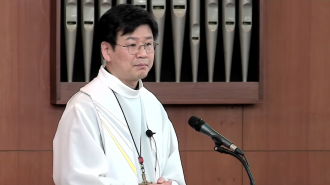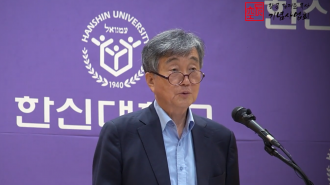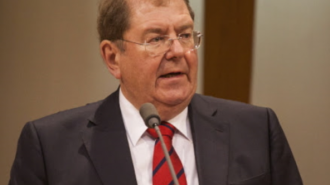CHRISTIAN WITNESS IN A MULTI-RELIGIOUS WORLD: RECOMMENDATIONS FOR CONDUCT
PREAMBLE
Mission belongs to the very being of the church. Proclaiming the word of God and witnessing to the world is essential for every Christian. At the same time, it is necessary to do so according to gospel principles, with full respect and love for all human beings.
Aware of the tensions between people and communities of different religious convictions and the varied interpretations of Christian witness, the Pontifical Council for Interreligious Dialogue (PCID), the World Council of Churches (WCC) and, at the invitation of the WCC, the World Evangelical Alliance (WEA), met over a period of 5 years to reflect and produce this document to serve as a set of recommendations for conduct on Christian witness around the world. This document does not intend to be a theological statement on mission but to address practical issues associated with Christian witness in a multi-religious world.
The purpose of this document is to encourage churches, church councils and mission agencies to reflect on their current practices and to use the recommendations in this document to prepare, where appropriate, their own guidelines for their witness and mission among those of different religions and among those who do not profess any particular religion. It is hoped that Christians across the world will study this document in the light of their own practices in witnessing to their faith in Christ, both by word and deed.
A BASIS FOR CHRISTIAN WITNESS
1. For Christians it is a privilege and joy to give an accounting for the hope that is within them and to do so with gentleness and respect (cf. 1 Peter 3:15).
2. Jesus Christ is the supreme witness (cf. John 18:37). Christian witness is always a sharing in his witness, which takes the form of proclamation of the kingdom, service to neighbour and the total gift of self even if that act of giving leads to the cross. Just as the Father sent the Son in the power of the Holy Spirit, so believers are sent in mission to witness in word and action to the love of the triune God.
3. The example and teaching of Jesus Christ and of the early church must be the guides for Christian mission. For two millennia Christians have sought to follow Christ’s way by sharing the good news of God’s kingdom (cf. Luke 4:16-20).
4. Christian witness in a pluralistic world includes engaging in dialogue with people of different religions and cultures (cf. Acts 17:22-28).
5. In some contexts, living and proclaiming the gospel is difficult, hindered or even prohibited, yet Christians are commissioned by Christ to continue faithfully in solidarity with one another in their witness to him (cf. Matthew 28:19-20; Mark 16:14-18; Luke 24:44-48; John 20:21; Acts 1:8).
6. If Christians engage in inappropriate methods of exercising mission by resorting to deception and coercive means, they betray the gospel and may cause suffering to others. Such departures call for repentance and remind us of our need for God’s continuing grace (cf. Romans 3:23).
7. Christians affirm that while it is their responsibility to witness to Christ, conversion is ultimately the work of the Holy Spirit (cf. John 16:7-9; Acts 10:44-47). They recognize that the Spirit blows where the Spirit wills in ways over which no human being has control (cf. John 3:8).
PRINCIPLES
Christians are called to adhere to the following principles as they seek to fulfil Christ’s commission in an appropriate manner, particularly within interreligious contexts.
1. Acting in God’s love. Christians believe that God is the source of all love and, accordingly, in their witness they are called to live lives of love and to love their neighbour as themselves (cf. Matthew 22:34-40; John 14:15).
2. Imitating Jesus Christ. In all aspects of life, and especially in their witness, Christians are called to follow the example and teachings of Jesus Christ, sharing his love, giving glory and honour to God the Father in the power of the Holy Spirit (cf. John 20:21-23).
3. Christian virtues. Christians are called to conduct themselves with integrity, charity, compassion and humility, and to overcome all arrogance, condescension and disparagement (cf. Galatians 5:22).
4. Acts of service and justice. Christians are called to act justly and to love tenderly (cf. Micah 6:8). They are further called to serve others and in so doing to recognize Christ in the least of their sisters and brothers (cf. Matthew 25:45). Acts of service, such as providing education, health care, relief services and acts of justice and advocacy are an integral part of witnessing to the gospel. The exploitation of situations of poverty and need has no place in Christian outreach. Christians should denounce and refrain from offering all forms of allurements, including financial incentives and rewards, in their acts of service.
5. Discernment in ministries of healing. As an integral part of their witness to the gospel, Christians exercise ministries of healing. They are called to exercise discernment as they carry out these ministries, fully respecting human dignity and ensuring that the vulnerability of people and their need for healing are not exploited.
6. Rejection of violence. Christians are called to reject all forms of violence, even psychological or social, including the abuse of power in their witness. They also reject violence, unjust discrimination or repression by any religious or secular authority, including the violation or destruction of places of worship, sacred symbols or texts.
7. Freedom of religion and belief. Religious freedom including the right to publicly profess, practice, propagate and change one’s religion flows from the very dignity of the human person which is grounded in the creation of all human beings in the image and likeness of God (cf. Genesis 1:26). Thus, all human beings have equal rights and responsibilities. Where any religion is instrumentalized for political ends, or where religious persecution occurs, Christians are called to engage in a prophetic witness denouncing such actions.
8. Mutual respect and solidarity. Christians are called to commit themselves to work with all people in mutual respect, promoting together justice, peace and the common good. Interreligious cooperation is an essential dimension of such commitment.
9. Respect for all people. Christians recognize that the gospel both challenges and enriches cultures. Even when the gospel challenges certain aspects of cultures, Christians are called to respect all people. Christians are also called to discern elements in their own cultures that are challenged by the gospel.
10. Renouncing false witness. Christians are to speak sincerely and respectfully; they are to listen in order to learn about and understand others’ beliefs and practices, and are encouraged to acknowledge and appreciate what is true and good in them. Any comment or critical approach should be made in a spirit of mutual respect, making sure not to bear false witness concerning other religions.
11. Ensuring personal discernment. Christians are to acknowledge that changing one’s religion is a decisive step that must be accompanied by sufficient time for adequate reflection and preparation, through a process ensuring full personal freedom.
12. Building interreligious relationships. Christians should continue to build relationships of respect and trust with people of different religions so as to facilitate deeper mutual understanding, reconciliation and cooperation for the common good.
RECOMMENDATIONS
The Third Consultation organized by the World Council of Churches with the support of the World Evangelical Alliance, and by the PCID of the Holy See with participation from the largest Christian families of faith (Catholic, Orthodox, Protestant, Evangelical and Pentecostal), having acted in a spirit of ecumenical cooperation to prepare this document for consideration by churches, national and regional confessional bodies and mission organizations, and especially those working in interreligious contexts, recommends that these bodies:
1. study the issues set out in this document and where appropriate formulate guidelines for conduct regarding Christian witness applicable to their particular contexts. Where possible this should be done ecumenically, and in consultation with representatives of other religions.
2. build relationships of respect and trust with people of all religions, in particular at institutional levels between churches and other religious communities, engaging in on-going interreligious dialogue as part of their Christian commitment. In certain contexts, where years of tension and conflict have created deep suspicions and breaches of trust between and among communities, interreligious dialogue can provide new opportunities for resolving conflicts, restoring justice, healing of memories, reconciliation and peace-building.
3. encourage Christians to strengthen their own religious identity and faith while deepening their knowledge and understanding of different religions, and to do so also taking into account the perspectives of the adherents of those religions. Christians should avoid misrepresenting the beliefs and practices of people of different religions.
4. cooperate with other religious communities engaging in interreligious advocacy towards justice and the common good and, wherever possible, standing together in solidarity with people who are in situations of conflict.
5. call on their governments to ensure that freedom of religion is properly and comprehensively respected, recognizing that in many countries religious institutions and persons are inhibited from exercising their mission.
6. pray for their neighbours and their well-being, recognizing that prayer is integral to who we are and what we do, as well as to Christ’s mission.
APPENDIX: Background to the document
1. In today’s world there is increasing collaboration among Christians and between Christians and followers of different religions. The Pontifical Council for Interreligious Dialogue (PCID) of the Holy See and the World Council of Churches’ Programme on Interreligious Dialogue and Co-operation (WCC-IRDC) have a history of such collaboration. Examples of themes on which the PCID/IRDC have collaborated in the past are: Interreligious Marriage (1994-1997), Interreligious Prayer (1997-1998) and African Religiosity (2000-2004). This document is a result of their work together.
2. There are increasing interreligious tensions in the world today, including violence and the loss of human life. Politics, economics and other factors play a role in these tensions. Christians too are sometimes involved in these conflicts, whether voluntarily or involuntarily, either as those who are persecuted or as those participating in violence. In response to this the PCID and IRDC decided to address the issues involved in a joint process towards producing shared recommendations for conduct on Christian witness. The WCC-IRDC invited the World Evangelical Alliance (WEA) to participate in this process, and they have gladly done so.
3. Initially two consultations were held: the first, in Lariano, Italy, in 2006, was entitled “Assessing the Reality” where representatives of different religions shared their views and experiences on the question of conversion. A statement from the consultation reads in part: “We affirm that, while everyone has a right to invite others to an understanding of their faith, it should not be exercised by violating others’ rights and religious sensibilities. Freedom of religion enjoins upon all of us the equally non-negotiable responsibility to respect faiths other than our own, and never to denigrate, vilify or misrepresent them for the purpose of affirming superiority of our faith.”
4. The second, an inter-Christian consultation, was held in Toulouse, France, in 2007, to reflect on these same issues. Questions on Family and Community, Respect for Others, Economy, Marketing and Competition, and Violence and Politics were thoroughly discussed. The pastoral and missionary issues around these topics became the background for theological reflection and for the principles developed in this document. Each issue is important in its own right and deserves more attention that can be given in these recommendations.
5. The participants of the third (inter-Christian) consultation met in Bangkok, Thailand, from the 25th to 28th of January 2011 and finalized this document.
다종교 세계에서의 기독교 신앙간증
행동 지침
서론
선교는 교회 존재의 중심에 속해 있습니다. 하나님의 말씀을 선포하는 것과 세계에 증거하는 것은 모든 기독교인들에게 중요한 일입니다. 동시에 이러한 일을 모든 인류에 대한 존경과 사랑으로 복음의 방식에 따라서 하는 것이 필요합니다. 서로 다른 종교적 신념을 가지거나 기독교 신앙 간증에 대한 다른 해석을 가진 인종과 집단들 간에 긴장감이 존재한다는 인식 하에, 교황청 종교간대회평의회(PCID), 세계교회협의회 (WCC), 그리고 WCC가 초청한, 세계복음연맹(WEA)은 지난 5여년간의 교류를 통해 기독교인의 신앙 간증 행동 지침으로써 사용될 본 문서를 집필했습니다.
이 문서의 목적은 선교에 관한 신학적인 선언을 하고자 함이 아니며, 다종교 세계에서 기독교 신앙 간증에 관한 실질적인 문제들을 다루는 데 있습니다. 이 문서의 목적은 교회와, 교회 협회들, 그리고 선교 단체들이 현재 행하는 선교 방식들을 회고하고, 이 문서를 다른 신앙을 가진 사람들과 무종교인들을 향한 그들의 고유의 전도와 선교 방식에 관한 가이드라인을 준비하는 데 활용하게 하기 위함입니다. 세계의 많은 기독교인들에게 이 문서가 그리스도의 신앙을 증거하는 그들 고유의 행동 양식에 있어 말과 행동 모두로 적용될 수 있기를 바랍니다.
기독교 신앙 간증의 기초
1. 기독교인들에게 있어 그들 안에 있는 소망에 관한 이야기를 전할 수 있다는 것, 그리고 이를 온유함과 경외를 가지고 할 수 있다는 것은 특권이요, 기쁨이다. (베드로전서 3:15)
2. 예수 그리스도 자신이 최고의 간증이다. (요한복음 18:37) 기독교인의 신앙 간증은 하나님 나라, 이웃에 대한 섬김, 그리고 십자가의 죽음으로 이끌지라도 자기 자신을 전부 내어주는 자기 비움의 선포 형식을 띄는 간증을 나누는 것이다. 하나님 아버지께서 성령의 힘으로 그 아들을 세상에 보내신 것과 같이 신자들도 말과 행동에 있어 성삼위 하나님의 사랑을 증거하기 위해 선교지에 보내진다.
3. 예수 그리스도와 초기 교회의 본보기와 가르침은 기독교 선교에 있어 가이드가 되어야 마땅하다. 2000여년 동안 기독교인들은 하나님의 나라에 관한 좋은 소식을 나눔으로 그리스도의 도를 따르는 것을 추구해 왔다. (누가복음 4:16-20)
4. 다종교 세계의 기독교 신앙 간증은 다른 종교와 문화를 가진 사람들과 대화하는 것에 참여하는 것을 포함한다. (사도행전 17:22-28)
5. 어떤 상황들에서는 복음을 실천하고 선포하는 것이 힘들거나, 이러한 활동이 박해받거나 심지어는 금지되어 있지만 그리스도를 증거하는 것에 있어 서로가 연합하고, 신실하게 증거를 계속해나가는 것이 그리스도가 기독교인들에게 주신 사명이다. (마태복음 28:19-20; 마가복음 16:14-18; 누가복음 24:44-48; 요한복음 20:21; 사도행전 1:8)
6. 기독교인들이 속임수와 강제적인 수단에 의지한 부적합한 방법으로 선교를 행하고 있다면 그들은 복음에 위배되는 일을 하는 것이며 이로 인해 다른 이들에게 고통을 야기할 수 있다. 이런 방식은 회개를 요하며 우리 자신들에게 하나님의 끊임없는 은혜가 필요한 것을 상기시킨다. (로마서 3:23)
7. 기독교인들은 그리스도를 간증하는 것이 그들의 책임이지만, 개종은 온전히 성령에 의한 것임을 확신한다. (요한복음 16:7-9; 사도행전 10:44-47) 기독교인들은 성령이 인간이 영향력을 행사할 수 없는 방법으로 자신이 원하는 곳으로 임한다는 것을 알고 있다.
원칙
기독교인들은 적합한 방법으로 그리스도의 사명을 이루는 것을 추구하며, 다음의 원칙들을 고수하는 것이 요청된다. 이는 특별히 다종교 간의 맥락에서 더욱 그렇다.
1. 하나님의 사랑을 실천한다. 기독교인들은 하나님이 모든 사랑의 근원이라고 믿으며 그들의 신앙 간증의 행위 안에서도 사랑의 삶을 실천하고 그들의 이웃을 자기 몸 같이 사랑하는 것이 요구된다는 것을 믿는다.
2. 예수 그리스도를 모델 삼는다. 기독교인들은 삶의 모든 영역과, 그리고 특별히 신앙 간증의 행위 안에서, 그리스도의 사랑을 나누고, 전지전능하신 하나님 아버지와 성령님께 영광과 존귀를 드리며 그리스도의 본보기와 가르침을 따를 것이 요구된다.
3. 기독교인들의 도덕성. 기독교인들은 성실, 자비, 연민, 그리고 겸손으로 행동할 것이며, 모든 종류의 교만과, 타인을 업신여기는 행위, 그리고 차별을 극복할 것이 요구된다.
4. 섬김과 정의 실천. 기독교인들은 공의를 행하고 인자를 사랑하는 일에 부름 받았다. (미가 6:8) 더 나아가 다른 이들을 섬기고 그 섬기는 형제 자매 안에서 그리스도를 발견한다. 교육의 제공, 의료 제공, 구제, 정의의 실천, 시민단체 활동 등의 섬김의 실천은 복음을 증거하는 데 불가결한 요소이다. 기독교인들의 전도 활동에 가난과 노동 착취의 현장이 있어서는 안된다. 기독교인들은 섬김에 있어 금전적인 동기나 보수를 미끼로 사용하는 모든 방식들을 철폐해야 한다.
5. 치유사역에 있어서의 분별력. 복음 선포의 중요한 부분으로 그리스도인들은 치유의 사역을 실천한다. 치유사역을 행하면서 인간 존엄성에 경외함을 가지고 사람들의 연약함과 치유에 대한 필요가 남용되지 않도록 분별력을 가질 것이 요구된다.
6. 폭력의 배제. 기독교인들은 신앙 간증의 힘을 남용한 모든 종류의 폭력, 심지어는 심리적인 또는 사회적인 폭력들을 배제해야 한다. 예배당, 종교적 상징 또는 경전의 파괴를 포함한 종교적이거나 세속적인 권력에 의한 폭력, 불공정한 차별과 억압을 배제해야 한다.
7. 종교와 믿음의 자유. 공공 장소에서 자신의 종교를 선포하고 행하고 전파하고 전도하는 권리를 포함한 종교적 자유는 모든 인류가 하나님 형상으로 창조됐다는 데에 근거한 인간의 존엄성과 관계된다. 그러므로 모든 인간은 동일한 권리와 책임을 가진다. 정치적인 목표에 종교가 사용되는 곳 또는 종교적 탄압이 일어나는 곳에서 기독교인들은 이러한 이들을 규탄하는 예언적 증거에 참여해야 한다.
8. 상호 존중과 협력. 기독교인들은 상호 존중의 자세를 가지고 헌신하는 것이 요구되며, 정의, 평화와 공동의 선을 목표로 해야 한다. 서로 다른 종교 간의 협력은 이런 노력에 있어서 중요한 부분이다.
9. 모든 사람들에 대한 존중. 기독교인들은 복음이 문화에 도전을 주는 동시에 문화를 증진시킨다는 점을 직시한다. 복음이 문화의 어떤 부분에 도전을 줄 경우, 기독교인들은 모든 사람들을 존중하는 자세를 가지는 것이 요구된다. 기독교인들은 또한 자신의 문화에서도 복음에 의해 도전 받는 부분들을 잘 분별해야 한다.
10. 거짓증거의 철폐. 기독교인들은 진지하게, 또한 책임감 있게 말해야 한다. 그들은 다른 사람들의 신념과 행동 양식을 배우고 이해하기 위해 많이 들어야 하고, 그들 안에 진실되고 좋은 것들을 인정하고 가치를 볼 수 있어야 한다. 어떠한 의견과 비판적인 자세는 상호 존중의 분위기에서 이뤄져야 하며, 다른 종교에 관한 거짓 증거를 피하도록 분명히 해야 한다.
11. 개인적 분별력 의 확보. 기독교인들은 한 사람의 종교를 바꾸는 일은 중대한 일이며, 이는 개인의 자유를 확신하는 과정을 통해 올바른 회고와 준비를 위한 충분한 시간이 주어져야 하는 일임을 인정해야 한다.
12. 다른 종교간의 관계 증진. 기독교인들은 보다 더 깊은 상호 이해, 화합과 협력을 증진시키기 위해 다른 종교인들과 존경과 신뢰의 관계를 발전시키는 일을 지속해야 한다.
지침
WEA, PCID의 도움으로, 그리고 가장 큰 기독교 공동체 (가톨릭, 정교, 기독교, 복음주의와 성령주의) 의 참여로 WCC가 주최한 본 제3차 컨설테이션은 에큐메니컬 협력의 정신으로 이 문서를 교회, 국가와 지역의 신앙 고백적 공동체와 선교 단체들, 그리고 특별히 종교 간 관계에서 사역하는 이들에 의해 고려되도록 준비해 왔으며, 다음을 권면합니다:
1. 각 상황에 적용 가능한 이 서류와 기독교 증거에 관한 정식 행동 지침 상의 이슈들을 연구하십시오. 가능할 경우 이는 다른 종교 대표들의 자문을 통해야 하며 초교파적으로 이뤄져야 합니다.
2. 모든 종교인들과 존중과 신뢰의 관계를 정립하고 특별히 교회와 다른 신앙 공동체들과 단체적 차원에서 계속적인 타 종교 간의 대화를 다른 기독교적 활동과 더불어 해 나가야 합니다. 수년간의 긴장과 대립 속에 깊은 의혹을 쌓고 신뢰를 잃은 단체 간의 상황에서는, 종교 간의 대화가 대립을 완화하고 정의를 구현하고 상처를 치유한 기억과, 화해와 평화 증진의 새로운 기회를 제공할 수 있습니다.
3. 타 종교에 대한 이해와 지식을 두텁게 하고 타 종교가 지지하는 시각도 받아들이되, 기독교의 주체성과 신앙을 강화하도록 기독교인들을 격려합니다.
4. 다른 종교 단체들과 함께 정의와 공익을 위한 범종교적 시민단체 활동에 참여하고, 갈등 상황에 처한 사람들과 함께 연합하는 일에 협력하여야 합니다.
5. 많은 나라들에서 선교 활동을 하는 것이 억제된 것을 인정하면서도 종교 자유가 적당하고 포괄적으로 존중되는 것을 보장받기 위해 정부에 요청하도록 합니다.
6. 주변 이웃들과 그들의 복지를 위해 기도하고, 또한 기도가 기독교인들의 선교일 뿐 아니라 우리의 정체성에 관련되어 있으며, 또한 우리가 하는 일에 있어 중요한 부분임을 인지합니다.
부록: 본 문서의 배경
1. 오늘날 세계에는 기독교인들 사이에, 그리고 기독교인들과 다른 종교인들 간에 협력이 증가하고 있습니다. PCID와 WCC 내 종교 간 대화와 협력(IRDC) 프로그램은 이와 같은 협력의 역사를 공유하고 있습니다. PCID 와 WCC-IRDC 가 과거에 협력한 문제들의 예로는 타 종교인들 간의 결혼 (1994-1997), 타 종교 간의 기도 (1997-1998), 그리고 아프리카의 종교성 (2000-2004) 등이 있습니다. 본 문서는 이 협력의 결과물입니다.
2. 오늘날 세계에도 다른 종교 간 폭력, 인간 생명의 상실을 포함한 갈등이 증가하고 있습니다. 정치, 경제 그리고 다른 원인이 이러한 긴장을 발생시키고 있습니다. 때로는 본의가 아니거나 또는 본의를 가지고 핍박하거나 폭력에 참여하는 기독교인들도 이런 갈등에 개입되어 있습니다. 이에 대한 대응으로 PCID 와 WCC-IRDC 는 기독교 신앙증거 행위에 관한 지침을 공동으로 만드는 협력 과정에 참여하여 이 문제들에 대해 다루기로 결정했습니다. IRDC 는 이 과정에 WEA가 참여하도록 초대하였고, 이 초대는 기꺼이 수락됐습니다.
3. 처음에는 두 번의 컨설테이션이 열렸습니다. 첫번째 모임은 이탈리아의 라리아노에서 2006년에 ‘현실의 평가(Assessing the Reality)’라는 주제로 각기 다른 종교의 대표들이 그들의 개종에 대한 관점과 경험을 나누었습니다. 이 컨설테이션의 성명서의 한 부분은 “모든 사람들은 그들의 신앙의 이해에 다른 사람들을 초대할 권리를 가지고 있지만, 다른 사람들의 권리와 종교적 감성을 침해해서는 안되는 것을 확실시 한다. 종교의 자유는 우리 모두가 자신의 종교 외의 다른 종교를 존중하고, 자신의 신앙의 우월성을 확증하는 목적으로 다른 종교를 부정하거나, 비방하거나, 잘못 전하지 않아야 하는 우리 모두가 타협해서는 안되는 책임을 포함한다”라고 언급하고 있습니다.
4. 두 번째 모임은2007년 프랑스 뚤루즈에서 기독교인들 간의 공동의 이슈들을 논의하기 위해서 개최됐습니다. 가족과 공동체 (Family and Community), 타인 존중 (Respect for Others), 경제 (Economy), 마케팅과 경쟁 (Marketing and Competition), 그리고 폭력과 정치 (Violence and Politics)에 관한 질문들이 상세하게 토론됐습니다. 이 주제에 관련된 목회와 선교적인 이슈는 신학적인 회고의 배경과, 또한 본 문서 안에서 발전적으로 전개된 원칙을 세우는 데 배경이 되었습니다.
5. 세 번째로는 2011년 25일부터 28일까지 태국 방콕에서 열린 기독교인들 간의 컨설테이션에 참석한 이들이 이 문서를 완성했습니다.











